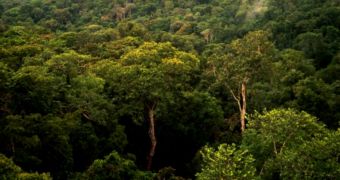Humans are known for being picky when it comes to eating, as demonstrated by those who are willing to starve themselves rather than eat something they don't want. The same apparently goes on in the animal world as well, with great implications for ecosystem stability.
Members of more than half of all species on the planet apparently change their diets as well, depending on whether they move to a new environment, or how old they are.
Some of these species may in fact change their diets more than once in a lifetime, and Rice University ecologists say that this places a great strain on the stability of natural ecosystems.
The new research, conducted in collaboration with researchers from the University of California in Santa Barbara (UCSB), also shows that understanding this behavior may hold the key to promoting the survival of threatened and endangered species.
“If a species has three resources in an ecosystem, and we take away one, conventional wisdom suggests that that species should be fine,” explains study coauthor and Rice ecologist Volker Rudolf.
“But if the missing resource is crucial for a particular developmental stage of the species, that just doesn't work. You can't take away all of the adults, for example, or all of the larvae, and assume that the species will persist,” adds the expert.
Rudolf, who holds an appointment as an assistant professor in ecology and evolutionary biology at the university, conducted the research with UCSB colleague Kevin Lafferty, also a coauthor of the paper.
The two researchers left from an established scientific fact in their work, which was that Earth was losing biodiversity fast, and that the planet is approaching a sixth major extinction event.
In a paper published in the latest issue of the esteemed journal Ecology Letters, the two coauthors say that not all food resources used by a species are interchangeable among all members of the species.
This is an entirely new idea, and one that goes against established knowledge in conservation and protection statuses. The old approach, the team says, failed to discover that young adults of a species may need a certain food in that ecosystem in order to turn into an adult.
“With this data, we were able to estimate the percentage of resources that are actually shared among developmental stages. In addition, we were able to show how this affects the stability of natural ecosystems,” Rudolf explains.
“We found that in most food webs, the individual stages of a species typically share less than 50 percent of their resources,” the scientist goes on to say.
“And within certain subgroups, like metamorphic species, that number is sometimes less than 10 percent,” he adds. The research was made possible by funding provided by the US National Science Foundation (NSF).

 14 DAY TRIAL //
14 DAY TRIAL //